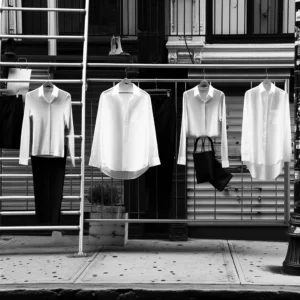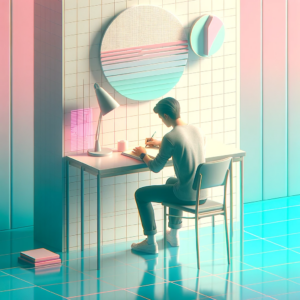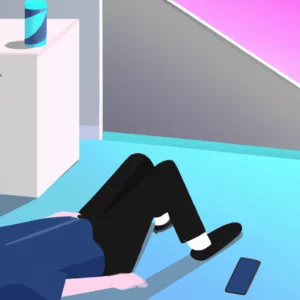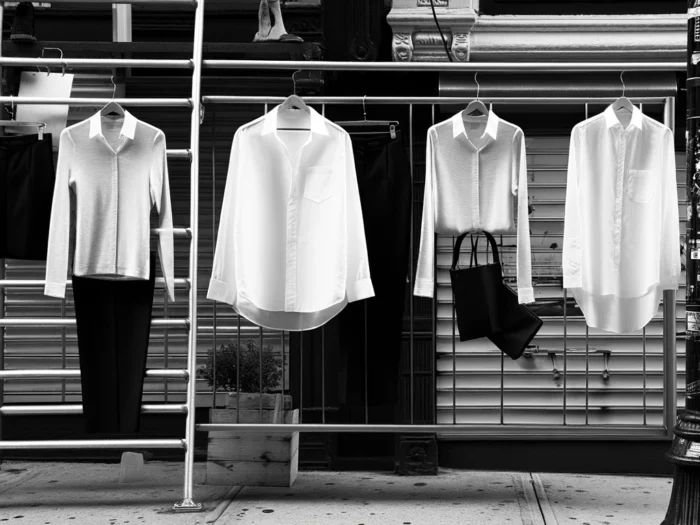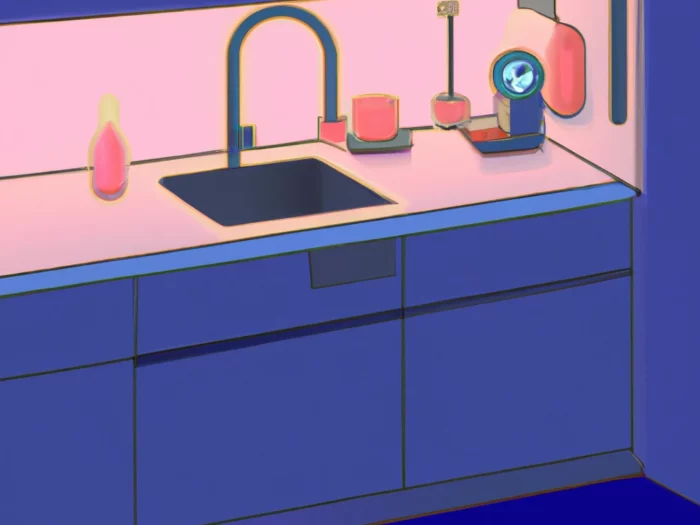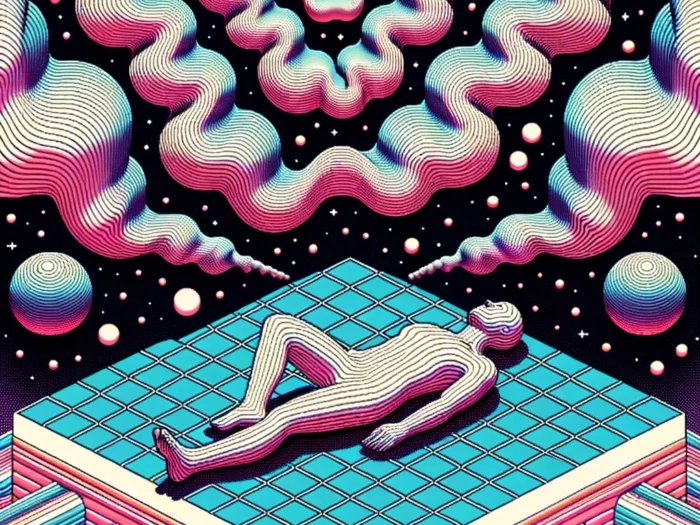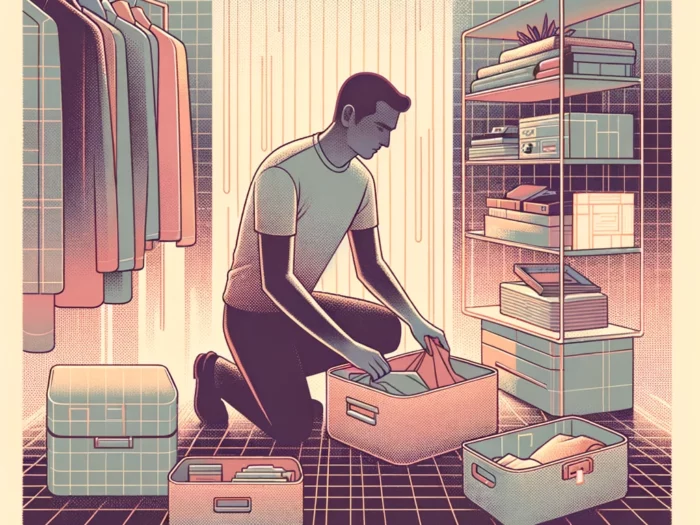
I’ve always lived simply. I was a child victim of an extreme cult. We lived simply, with only the stark necessities. In my twenties, I chose to live simply in a 20-foot trailer. I rode a bicycle as my primary source of transportation. In my thirties, I went back to college and spent eight years living simply in a studio apartment while earning three college degrees.
It’s only been in the past 15 years that I’ve chosen to live in anything bigger than a one-bedroom apartment, especially since I’ve become a father. Now I don’t see myself fitting into the category of “minimalist.”
I’m Not Really A Minimalist
There. I said it. I’m not really a minimalist. At least not if I compare myself to many others who label themselves as minimalists. So why do I write about minimalism? Because I believe in simple, practical living. And although minimalists might be on a similar page, I’ve always struggled with uncertain labels. Minimalism is not clearly defined in regard to a lifestyle choice. I don’t want to label myself as something that I can’t define. For example:
- If I say I’m a writer: I prove it simply by the act of writing quality work.
- If I say I’m a musician: I prove it by the fact that I can play several musical instruments.
- If a say I’m a teacher: I prove it because I teach communication courses to earn my living.
But if I call myself a minimalist? How do I prove that? By how many things I own? By the size of my house? See? I believe there’s a problem with the term “minimalist” when it’s applied to a lifestyle. There’s no clear definition. It tends to encourage black-and-white thinking.
What’s the difference between minimalism and simplicity? It’s simple. I see minimalism as an uncertain term. Sometimes it seems as though it’s merely a fad. I see simplicity as a lifestyle. If I call myself a “minimalist,” I put myself in a box. I limit my full potential. If I say that I “live simple,” I give myself room to move outside of that box, yet I actively commit to living simply. A “minimalist” is a noun, a thing. To “live simple” is an action, a lifestyle. I choose the latter.
Simply, Stop Creating Labels
One reason I’ve slowly pulled away from minimalism as a label for lifestyle is that I see too many imposed rules. I prefer strategies over rules. I wouldn’t buy a one-size-fits-all pair of yoga pants. Okay, I may not buy yoga pants at all. But that’s exactly how I see many minimalists trying to promote and sell minimalism: as if it’s a one-size fits-all lifestyle. Perhaps you’ve seen some of the following problematic statements on one of your favorite minimalist blogs.
1. Don’t Organize
I’ve read it repeatedly. Don’t organize, just get rid of your stuff. Yes, get rid of unneeded stuff, but organize the rest. I don’t care how much stuff we own. We still need to organize what we have.
When I lived in a trailer with less than a couple hundred items, I still kept my trailer organized. A friend of mine lived on a sailboat and said that organization becomes more important when you have less space. In fact, it’s only through very concise organizational skills that minimalist art, music, and architecture is created.
Where would small business and blogs be without organization? Organization is actually part of the minimization process. So go ahead and organize.
2. A House Is Just A Useless Box
I’ve seen minimalists make comments about houses as a lifeless boxes. It’s just wood and glass and wires. A house doesn’t really matter because it’s an empty shell. What’s the alternative? Homelessness?
A house is a home. Where we grow up is important. Our furnishings and belongings are part of who we are, who we become. Home is our refuge, our comfort: it’s the people, the memories, and the love that matters. Think back to your own childhood. Did your home or your grandparent’s home play major roles? Of course. This does not mean we have to own large homes and fill them to the hilt with consumer goods. But if you throw the idea of home out the window, you divide the very community you’re trying to build.
3. All Debt Is Bad Debt
Okay, I’m not happy that I owe money. However, I’ve been able to give my 10-year-old daughter a home, security, and the basic necessities of life. If it weren’t for borrowing money, I wouldn’t have a good career as a college instructor. I wouldn’t have had the money to protect my daughter through a hard custody battle. I wouldn’t have a dependable car and a place she can call home.
My debt is my burden, but it’s also given me the ability to be the best parent I can be. Still, I’ve created a ten-year plan that will not only help me reach debt-free, but will also provide for my retirement. Most great business people know there is a time to borrow money. How do you think they got started? Not ALL debt is bad debt.
4. It Must Add Value
I think it’s important that our belongings add value to our lives. We should be deliberate about what we choose to buy and own. But let’s be honest, a toilet brush doesn’t add much value to my life. Still, it helps to keep my toilet clean. I have a couple of junk drawers. Many of the things in those drawers go relatively unused. They don’t add much value. But I’m sure glad I have a flashlight when the power goes out and a screwdriver when I need one. I think living simple is less about considering what adds value and more about considering what is practical.
Where’s The Logic?
There are dozens of dichotomies I’ve discovered when we try to box minimalism as a lifestyle. In fact, when we do that, we’re actually turning it into another product, something to sell, a blog, a book, a movie. Sometimes, I believe that minimalists become excessive in their own goals.
Excessive minimalism is a direct contradiction to itself. It’s an oxymoron. The word minimalism was never designed to describe a lifestyle. It was designed to describe art and music. Yes, we can borrow it, but it doesn’t fit as neatly to describe lifestyle as it does to describe the things we create.
You Don’t Have To Live In Black & White
Minimalism is a form of creativity in which we strip things down to the bare necessities. A minimalist painter, for instance, might strip his or her painting down to using a single color. Too often, I feel that the idea minimalism as a lifestyle tries to break things into black and white. A photograph can be black and white. A painting can have only one color. A musical piece can have no melody. But life is not black and white. Life is full of color and melody. I want to embrace those colors. I want to experience the variety that life has to offer.
Bottom line: It’s okay to accept all the colors of the rainbow as we live simply. It’s okay to whistle a beautiful melody on our journey. It’s okay to organize our limited stuff. It’s okay to borrow money to buy a home. It’s okay to own a few things that we might need even if they don’t add value to our lives. The key is to simply live simple.





